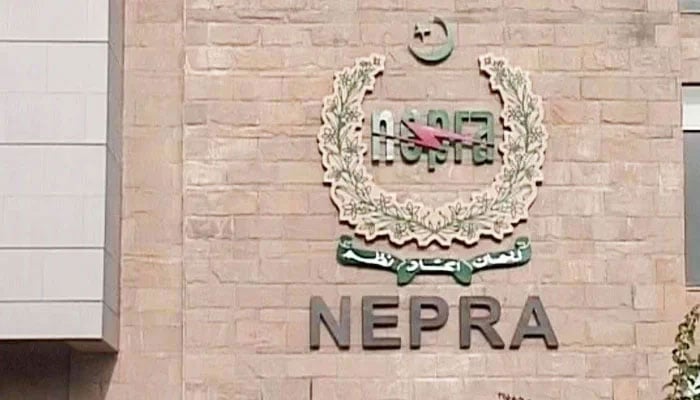Nepra dismisses govt request on bagasse fuel pricing
ISLAMABAD: The National Electric Power Regulatory Authority (Nepra), on Monday, dismissed a reconsideration request filed by the federal government regarding the modification of the fuel price mechanism for bagasse-based power projects.
It is to be noted that Nepra established an upfront tariff for new bagasse-based cogeneration Independent Power Projects (IPPs) on May 29, 2013 -- officially notified through SRO No 771/(1)/2013 on September 3, 2013. In 2014, this tariff was extended to bagasse captive power projects (CPPs) via suo-motu proceedings.
In 2018, Nepra began a suo-motu review to amend the bagasse pricing for both CPPs and IPPs under the 2013 upfront tariff. The regulatory authority's decision on this matter was issued on July 16, 2019.
Eight operational bagasse IPPs challenged Nepra's decision in the Islamabad High Court under Article 199 of the constitution. The court suspended Nepra's decision and referred the case to the Nepra Appellate Tribunal.
The tribunal overturned Nepra's decision on July 16, 2019, and sent the case back to Nepra for a fresh decision, allowing all concerned parties a hearing.
Hearings were held on March 15, 2023, and September 6, 2023, with notices sent to the relevant stakeholders, including the Ministry of Energy. However, the ministry chose not to attend or submit comments. After reviewing all submissions and following legal procedures, Nepra issued its decision on February 7, 2024.
The Ministry of Energy (Power Division) submitted the reconsideration request under Section 31(7) of the NEPRA Act, 1997, which pertains to Nepra’s earlier decision following an appellate tribunal's ruling. The ministry, a significant stakeholder, raised concerns about the tariff adjustments for bagasse-based co-generation IPPs.
Nepra collectively determined that the motion was not maintainable on several grounds. First, the request was deemed time-barred as it was filed beyond the statutory 30-day period allowed for such reconsiderations. The Ministry of Energy had submitted the request on March 20, 2024, while Nepra had issued its determination on February 7, 2024.
Additionally, Nepra highlighted that its jurisdiction to reconsider tariff determinations was limited to public-sector licencees involved in distribution and supply, not generation companies. The regulatory authority emphasised that expanding the scope beyond the statutory provisions was not permissible.
Despite the procedural dismissal, Nepra addressed the merits of the ministry's claims. It clarified that the new fuel price mechanism for bagasse projects, which delinks bagasse pricing from international coal prices, was based on comprehensive consultations and aimed at reducing the impact of exchange rate fluctuations. This mechanism was designed to provide a lower cost for indigenous bagasse fuel compared to imported coal.
In a separate decision, Member Tariff Mathar Niaz Rana acknowledged the importance of reconsidering significant stakeholder concerns but ultimately agreed with the procedural limitations cited by Nepra. Rana emphasised the regulatory authority's duty to uphold fairness and transparency in its decision-making process to bolster public confidence.
The ministry, overseeing power policies, finance, tariff, and subsidies and representing 22 public-sector companies and two statutory bodies, prompted Nepra's review request, which may be treated as a petition for review based on recent precedents.
-
 Savannah Guthrie Expresses Fresh Hope As Person Detained For Questioning Over Kidnapping Of Nancy
Savannah Guthrie Expresses Fresh Hope As Person Detained For Questioning Over Kidnapping Of Nancy -
 ByteDance Suspends Viral Seedance 2.0 Photo-to-voice Feature: Here’s Why
ByteDance Suspends Viral Seedance 2.0 Photo-to-voice Feature: Here’s Why -
 Tom Hanks Diabetes 2 Management Strategy Laid Bare
Tom Hanks Diabetes 2 Management Strategy Laid Bare -
 Bad Bunny Wins Hearts With Sweet Gesture At Super Bowl Halftime Show
Bad Bunny Wins Hearts With Sweet Gesture At Super Bowl Halftime Show -
 Why Angelina Jolie Loves Her 'scars' Following Double Mastectomy
Why Angelina Jolie Loves Her 'scars' Following Double Mastectomy -
 ‘World Is In Peril’: Anthropic AI Safety Researcher Resigns, Warns Of Global Risks
‘World Is In Peril’: Anthropic AI Safety Researcher Resigns, Warns Of Global Risks -
 Meghan Markle Receives Apology As Andrew Puts Monarchy In Much Bigger Scandal
Meghan Markle Receives Apology As Andrew Puts Monarchy In Much Bigger Scandal -
 Catherine O’Hara Becomes Beacon Of Hope For Rectal Cancer Patients
Catherine O’Hara Becomes Beacon Of Hope For Rectal Cancer Patients -
 Nancy Guthrie: Is She Alive? Former FBI Director Shares Possibilities On 10th Day Of Kidnapping
Nancy Guthrie: Is She Alive? Former FBI Director Shares Possibilities On 10th Day Of Kidnapping -
 Siemens Energy Profit Surges Nearly Threefold Amid AI Boom For Gas Turbines, Grids
Siemens Energy Profit Surges Nearly Threefold Amid AI Boom For Gas Turbines, Grids -
 TikTok's ByteDance To Develop Advance AI Chips With Samsung
TikTok's ByteDance To Develop Advance AI Chips With Samsung -
 Princess Beatrice, Eugenie In Dilemma As Andrew, Fergie Scandal Continues
Princess Beatrice, Eugenie In Dilemma As Andrew, Fergie Scandal Continues -
 Tumbler Ridge School Shooting Among Canada’s Deadliest — Here’s Where It Ranks
Tumbler Ridge School Shooting Among Canada’s Deadliest — Here’s Where It Ranks -
 Suspect Detained As Authorities Probe Nancy Guthrie’s Abduction
Suspect Detained As Authorities Probe Nancy Guthrie’s Abduction -
 Tumbler Ridge Tragedy: Nine Killed, 25 Injured After School Shooting In British Columbia
Tumbler Ridge Tragedy: Nine Killed, 25 Injured After School Shooting In British Columbia -
 FDA Sends 'refusal-to-file' To Moderna Over New Flu Vaccine
FDA Sends 'refusal-to-file' To Moderna Over New Flu Vaccine




